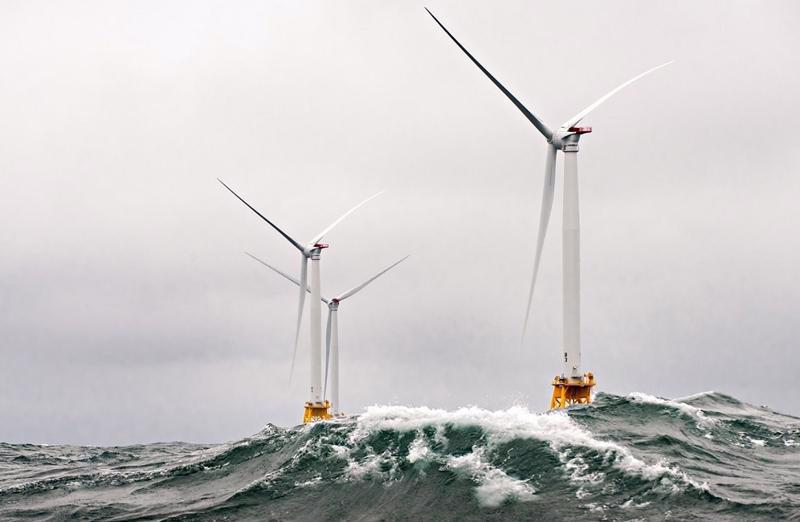The development of offshore wind power is considered a breakthrough solution in energy transition and ensuring national energy security, but mechanisms, policies, and a clear legal framework are needed to promote the industry, a recent seminar in Hanoi heard.
Speaking at the “Promoting Vietnam’s Offshore Wind Power Development: International Best Practices and Policy Recommendations” seminar, Deputy Head of the Party Central Committee’s Economic Commission Nguyen Duc Hien said the Politburo resolution on orientations for national energy development strategy by 2030 with a vision towards 2045 sets a task of building supporting policies and mechanisms to develop offshore wind power in connection with the implementation of the Vietnam Maritime Strategy.
The Party Central Committee issued a resolution last November on continuing to promote industrialization and modernization by 2030 with a vision to 2045, which defines that a roadmap to develop renewable energy is needed that is in line with actual circumstances and development levels in the country, on the basis of evaluating the benefit and cost to the economy.
The energy industry is defined under the resolution as one of six basic sectors that need top priority for development, especially renewable energies and new types of energy.
Vietnam has substantial potential and opportunities to develop wind energy, according to Mr. Hien.
Together with capacity and experience in building offshore marine works and supporting logistics systems for the oil and gas industry, Vietnam could make good use of its internal resources to develop the offshore wind power industry associated with the value chain of support industries and logistics services, he said.
By the end of 2021, total registered capacity of offshore wind power investment in Vietnam was about 154GW.
The draft National Power Development Plan VIII (PDP 8) sets a target of developing about 16,121MW of onshore and nearshore wind power and about 7,000MW of offshore wind power by 2030. By 2045, the offshore wind capacity is expected to reach approximately 64,500MW.
However, Mr. Hien said the sector is facing challenges of technical and technological complexity and needs huge, long-term investment capital.
Other problems also need to be clarified, in planning, mechanisms, construction investment policies, leasing regulations, licensing, standards, operating regulations, electricity price mechanisms, electricity purchase contracts, and regulations on the operation of power systems, seaport systems, and the development of supply chains.
Ambassador of Denmark to Vietnam, H.E. Nicolai Prytz, suggested that the Vietnamese Government soon issue a clear and consistent regulatory framework, which is essential for the development of the offshore wind industry, starting with the approval of the PDP 8 and exclusive offshore survey rights.









 Google translate
Google translate